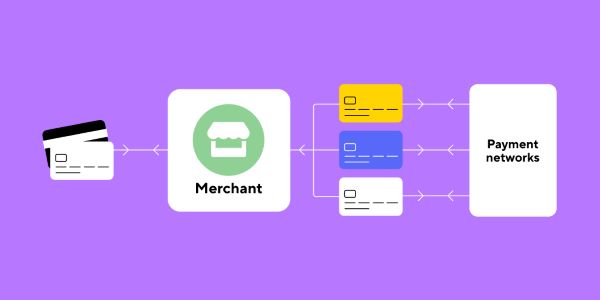In case you missed it see what’s in this section
Let's Talk

5 Reasons Why Your Business Needs a Multi-Platform Payment System
Businesses worldwide are grappling with the need to satisfy evolving customers' expectations for quick, convenient, and secure transactions. In response to these challenges, adopting a multi-platform payment system emerges as a strategic solution.
Below, we explore five compelling reasons why integrating a multi-platform payment system is crucial for sustainable business growth.
1. Enhanced Customer Convenience
Meeting Customers Where They Are
Consumers today expect seamless service and convenience. A multi-platform payment system meets these expectations by allowing customers to make payments through various methods and platforms — whether via mobile apps, websites, in-store terminals, or even through social media platforms.
Such flexibility helps cater to a broader audience, accommodating the preferences of different customer segments. For instance, younger consumers might prefer mobile-based checkout solutions, while older demographics might opt for more traditional credit card methods.
Offering multiple payment methods can improve satisfaction and loyalty, potentially increasing the likelihood of repeat customers and positive reviews.
Reducing Friction at Checkout
According to the Baymard Institute, the average cart abandonment rate is nearly 70%. One primary reason for this high rate is a complicated or limited online checkout system. By offering multiple payment options, you can reduce friction at checkout, ensuring that customers complete their purchases easily.
Catering to Global Audiences
In a globalised market, businesses often have customers from different parts of the world. A multi-platform payment system can support various currencies and payment methods, making it easier for international customers to pay. This inclusivity is a must-have for your scalability and customer satisfaction on a global scale.
2. Increased Sales and Revenue
Capitalising on Impulse Purchases
Impulse purchases are a vital part of sales, particularly in the e-commerce sector. By offering a variety of payment options, you remove barriers that might prevent customers from
completing an impulse purchase. Whether it's through a credit card, a digital wallet, or a "buy now, pay later" scheme, offering these choices helps secure sales that might otherwise slip away.
Utilising Data for Personalised Offers
A multi-platform payment system not only facilitates transactions but also gathers crucial data on customer purchase behaviours. This data can be leveraged to craft personalised offers and promotions, which encourage repeat business and strengthen customer loyalty. Personalised marketing has proven effective in increasing conversion rates and enhancing revenue.
3. Improved Security and Fraud Prevention
Advanced Security Measures
Omnichannel payment solutions are equipped with advanced security features to safeguard businesses and their customers. These features include encryption, tokenisation, and secure customer authentication protocols, which ensure that sensitive payment information remains protected. In an era of continuously evolving cyber threats, robust payment security measures are essential.
Compliance with Regulatory Standards
Different regions enforce various regulations concerning payment processing. Utilising a reputable omnichannel payment solution ensures that your business adheres to these regulations, such as the Payment Card Industry Data Security Standard (PCI DSS). Compliance not only shields your business from potential legal challenges but also enhances customer trust.
Fraud Prevention
Customers are more likely to transact with businesses that demonstrate a commitment to protecting their data. Omnichannel payment systems typically include sophisticated fraud detection tools that identify and prevent suspicious transactions. By minimising the risk of fraud, you safeguard your revenue and uphold your business’s integrity.
4. Streamlined Operations
Simplified Payment Reconciliation
Managing payments across multiple platforms can be a logistical nightmare without the right system in place. A multi-platform payment solution consolidates all payment data into a single, unified interface. This simplification makes it easier for your finance team to reconcile payments, track revenue, and manage cash flow.
Automated Processes
Automation is a key benefit of advanced payment systems. Tasks such as invoicing, payment reminders, and recurring billing can be automated, reducing your staff's workload and minimising the risk of human error. This efficiency allows your team to focus on more strategic activities that drive business growth.
Integration with Business Systems
Modern payment processing solutions are designed to integrate seamlessly with various business software platforms, including CRM systems, accounting software, and inventory management tools. This level of integration ensures that all your business processes are synchronised and function cohesively, ultimately leading to enhanced operational efficiency.
5. Future-Proofing Your Business
Adapting to Emerging Trends
The payment landscape is in constant flux, driven by emerging technologies and evolving trends. A flexible and scalable multi-platform payment system enables your business to quickly adapt to these changes, enhancing customer convenience and increasing conversions.
Supporting Business Growth
As your business expands, your payment processing requirements will grow more complex. A scalable payment system evolves with your business, accommodating an increasing volume of transactions and extending support to new markets and currencies. This scalability ensures that your payment infrastructure can support your business growth without becoming a bottleneck.
Enhancing Customer Experience
Online payment systems offer key advantages, including offering the latest payment options, ensuring fast and secure transactions, and providing exceptional customer support. By adopting these strategies, you can cultivate a loyal customer base that contributes to long-term success.
Conclusion
The integration of a multi-platform payment system is no longer an option for businesses; it has become a necessity to remain competitive and relevant in the digital economy. The benefits are clear, from enhancing customer convenience and increasing sales to improving security.
So, take the step today to integrate an omnichannel payment solution into your business operations. It will position your business for sustained growth and success in the years to come.
Weather in Swindon
Listings





















